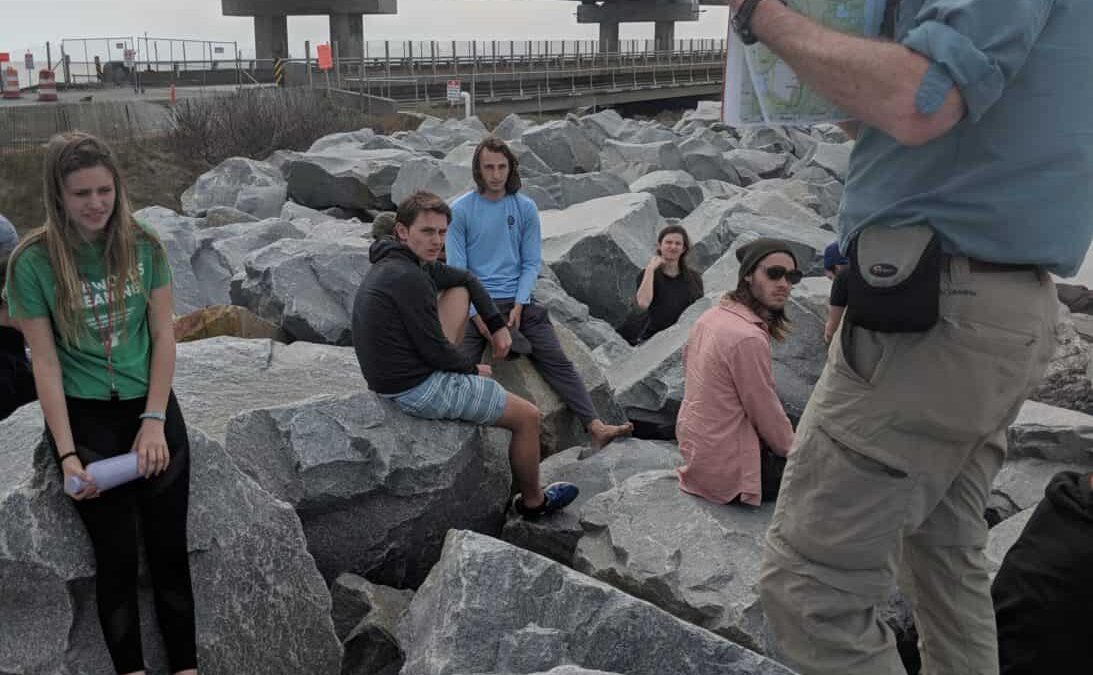LAURA LAPHAM — The Geoscience department studies naturally geological events all over the earth; however, you will not find any active volcanoes, oceans, or many geological events and settings in Granville, Ohio. To be able to see more of the geology of the earth, the Geoscience department takes field trips like the Spring semester field trip this year to the Barrier Islands in North Carolina giving students a hands on experience in the field.
Last week the Geoscience department took 16 students to the Barrier Islands to understand the processes that affect the formation and movement of the Barrier Islands. However, the trip does not just cover the Barrier Islands, but students stopped at different locations along the way to the Barrier Islands to learn about the different geographical locations they would drive through on their way to their destination. The group took a stop at Pilot Mountain in North Carolina to discuss how it formed and the boundary between the Blue Ridge mountains and the Piedmont.
The students arrived at the Barrier Islands, and the group of students would travel through the day to different locations to learn about the geography and geology of the Barrier Islands while also seeing the human interactions with the natural processes or erosion and movement of the banks.
A major element of the outer banks is that the islands are moving. The outer banks are naturally being eroded away toward the ocean and more sediment is being deposited west toward the continent. However, this is an issue for the people who have decided to build and possibly live on the island. This interaction was an important part of learning about the islands.
Professor David Goodwin, a Geoscience professor from Underhill Vermont, was one of the professors that accompanied students on the trip. He thinks the trips are important, since, “we are interested in how to apply what they have used in the classroom to rocks in the field. We believe our best classroom is the the world around us and in a perfect world, we would always teach outside, not inside.”
Eva Jorn ‘20, a geoscience major and a biology minor from Milwaukee Wisconsin, thinks the trips are important for those involved in the department. “It fosters comradery between the professors and the students as well as between older students and younger students in the department, It creates a community.” Dave also believes that “we have a tight-nit department that includes faculty and students, and that stems from our ability to take students and faculty in the field.” The interactions between the members of the department is an important part of the trips along with the learning.
The field trips for the Geoscience department are essential for the students to be able to learn hands-on in the field. The trips also foster an important connection between the members of the department.

